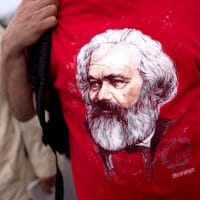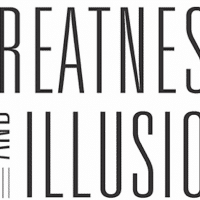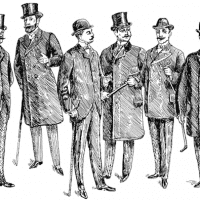-
21st-century Marx
The 21st century has already welcomed back Karl Marx (1818-1883), rather on the assumption that he had faded away and has now returned to haunt us. After the financial crashes of 2008, his leonine face appeared on international news magazine covers, feature articles in quality broadsheets, TV documentaries and blogposts. The questions Why now? and Why Marx? are easily answered: capitalism suddenly appeared unstable, unmanageable, dangerously fragile and anxiously threatening.
-
Social Reproduction Theory: going beyond Marx’s Capital
Colin Barker of Manchester rs21 introduced a panel discussion to launch the book Social Reproduction Theory: Remapping Class, Recentering Oppression at the recent Historical Materialism conference in London . We reproduce Colin’s presentation here.
-
“The seeds of revolt are present in many places”
Interview with John Bellamy Foster, Editor of Monthly Review. By JIPSON JOHN and JITHEESH P.M.
-
Marx on imperialism
On February 19, 1881, Karl Marx had written a remarkable letter to N.F. Danielson, the renowned Narodnik economist who had also gone under the name of Nikolayon and whose work had been much discussed by Lenin.
-
“Social leaders are murdered because of fights over women”, said Colombia’s Defense Minister
Just a week ago, Colombian social leaders denouncing the murder of another one showed up to the press conference with masks covering their faces in order to avoid risking to lose their own lives—such is the danger of defending human rights in Colombia.
-
Reiterating Mao on December 26, his birth anniversary
Reiterating Mao’s teachings is one of the essentials in the area of political education as a new generation is joining people’s struggle.
-
Taxes, inequality, and class power
No doubt about it, the recently passed tax bill is terrible for working people. But as Lance Taylor states in a blog post titled “Why Stopping Tax ‘Reform’ Won’t Stop Inequality”: “Inequality isn’t driven by taxes—its driven by the power of capital in relation to workers.” Said differently we need to concentrate our efforts on shifting the balance of class power. And that means, among other things, putting more of our energy into workplace organizing and revitalizing the trade union movement.
-
From progressive neoliberalism to Trump and beyond
Whoever speaks of “crisis” today risks being dismissed as a bloviator, given the term’s banalization through endless loose talk. But there is a precise sense in which we do face a crisis today. If we characterize it precisely and identify its distinctive dynamics, we can better determine what is needed to resolve it.
-
The productive base as the ground of society and history: Marx’s base-superstructure theory
Base-Superstructure Theory (BST) is Marx’s guiding general theory, but is long misunderstood. Deeply embedded in a monumental corpus of system-challenging analysis, it has become lost in secondary interpretations with partial takes and opposed propagandas militating against coherent comprehension.
-
Alain Badiou debates reformist Laurent Joffrin
Alain Badiou is former chair of philosophy at École normale supérleure and author of In Praise of Politics. Laurent Joffrin is editor of Libération newspaper—and a reformist who defends existing social democracy. Alain Badiou recently announced that he would stop running his seminar. He also announced that he would soon be publishing The Immanence of Truths, completing […]
-
Capitalism, exterminism and the long ecological revolution
teleSUR spoke to Monthly Review editor John Bellamy Foster about climate change & the need to fight for an ecosocialist, revolutionary alternative to the profit-driven world capitalist system.
-
Concrete utopia
Where is Utopia today? Is this question relevant? One might argue that the term utopia is incongruous with the politics of our time, to say the least. Not only does the term ‘utopia’ indicate no place, when it found a place, it was mistreated and mutilated. What would be the place for utopian thinking in a world that is desperate to solve the accrued problems that it has created for itself? Would utopian thinking distract us from the real tribulations besetting the world?
-
Division, distraction, and domination: Revisiting the miner’s canary
A magazine owned by billionaire Michael Bloomberg recently reported on workers’ declining share of national income. “Why don’t workers get the full benefit of rising productivity? No one has good answers,” it stated, to the merriment of left Twitter. A raft of memes reminded Bloomberg Businessweek of the lessons of Piketty, Marx, and political economy generally.
-
Zachary Samalin reviews Karl Marx: Greatness and Illusion by Gareth Stedman Jones
“The Marx constructed in the twentieth century bore only an incidental resemblance to the Marx who lived in the nineteenth,” Gareth Stedman Jones writes at the close of his exhaustively researched biography Karl Marx: Greatness and Illusion (p. 595). This statement can be taken as the premise underlying Stedman Jones’s account of Karl Marx’s role in the political, economic and philosophical upheavals of the nineteenth century.
-
FreshEd #100: A Marxist critique of higher education
To celebrate the 100th episode of FreshEd, I’ve saved an interview with a very special guest.
-
A revolutionary voice for women’s freedom available in English for the first time
Liz Payne reviews The Woman Worker by Nadezhda K Krupskaya.
-
The critique of value at Belshazzar’s feast
In the years since the 2008 economic crisis, renewed interest in Marx and Marxism has begotten interest in heterogeneous varieties that in one way or another violate the framework of the “traditional,” “official,” or “orthodox” Marxism that underpinned the workers’ movement in Europe and state socialism in the countries of the Eastern bloc.
-
The Anti-Empire Report #153
“He said he absolutely did not meddle in our election. He did not do what they are saying he did.” – President Trump re Vladimir Putin after their meeting in Vietnam.
-
The American savings crisis, explained
When you lay all that out, Americans’ terrible saving rate stops looking like such a mystery. In fact, it looks downright rational.
-
The financial aristocrats will eat themselves
Even as far back as 1894, Karl Marx’s work saw that capitalism would devour its agents, writes DIEGO FUSARO.






![Mao Tse-tung [also spelled Mao Zedong]](https://mronline.org/wp-content/uploads/2017/12/mao-zedong-31-200x200.jpg)









![Monument to the Unknown Woman Worker [Cork Artist Louise Walsh]](https://mronline.org/wp-content/uploads/2017/12/17718587674_edb6e21c68_b-200x200.jpg)



